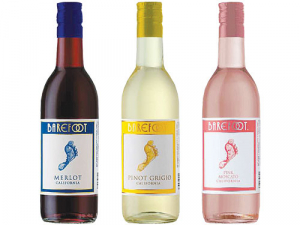Fonterra’s exit from Australia ‘a major event’
Fonterra’s impending exit from the Australian dairy industry is a major event but the story doesn’t change too much for farmers.
 Californian wine brand Barefoot Wines is one of a number who are taking advantage of the desire for single serve packaging. This is an opportunity for New Zealand producers to get into Hayden Higgins says.
Californian wine brand Barefoot Wines is one of a number who are taking advantage of the desire for single serve packaging. This is an opportunity for New Zealand producers to get into Hayden Higgins says.
Rabobank’s new horticulture and wine analyst believes there are a number of opportunities ahead for the New Zealand wine industry.
There are also some challenges – legalised marijuana being one of them, as Tessa Nicholson discovers.
Hayden Higgins began with Rabobank back in 2010 and just recently was appointed into a new role where he is responsible for the bank’s horticulture and wine sector research in New Zealand and Australia. He is replacing Marc Soccio, who left the bank last year.
Based in Hawke’s Bay, Higgins is also one of 10 members of Rabobank’s Global Beverage Sector team, giving him insights into more than just the New Zealand sector. It is those insights that have shown him where the opportunities and challenges lie in the years ahead.
Describing the New Zealand wine sector as being on a “progressive growth phase” for a number of years, he says the development of the US market has been a vital part of that. He believes it is also an important market in terms of returning value to exporters.
“We look at the US market as a higher value, higher volume market, versus emerging markets such as China. And currently our view is there is possibly more value to be captured in the US for a wine producer such as New Zealand.”
Higgins says we do need to be thinking about the potential impact of the much talked about trade wars that the US is promising with China and the EU. But again if they escalate further, it could offer up more opportunities for New Zealand.
“The US is one of the largest exporters (of wine) into the EU by value and by volume. So if trade challenges are created between the two, it could create opportunities for New Zealand. But Europe is also an important market for Australia and other Southern Hemisphere producers, who will also want to be leveraging off that. So we may face competition into that extra market, although on the positive side, we have different wine varietals such as Marlborough Sauvignon Blanc.”
In terms of challenges, Rabobank believes the rise of legalised marijuana in Canada and the US could pose a threat to the wine sector and the overall alcoholic beverage sector.
”If you look at the retail value as an example,” Higgins says, “wine in Canada was around US$12.5 billion in 2017. Cannabis was US$6.7 billion and most of that was obviously illegal or illicit sales. But what the trend in the US shows, is that once it becomes legalised in different states, there is quite a significant lift in usage.”
In some states of the US, once legalised the growth rate was close to 16 percent.
“It will be interesting to see how that might flow into the beverage market as an alternative option. To some consumers it will have no effect, some it will become a substitution and for others it may be complimentary. But certainly the early indications are that adoption is occurring in some states, faster than the consumption of wine.”
Higgins also believes New Zealanders need to be thinking carefully about packaging, as there are a number of opportunities to increase market share simply by changing the format our wine is sold in.
Wine in a can is becoming a trend in the US, if not in Europe. But all over the globe there is growing demand for single serve formats, including smaller bottle sizes.
“If you are exporting into a market with a premium quality wine the challenge could be, are you going to be able to attract that new consumer if they are only looking for a single size serve? That is a challenge, but one that could be turned into an opportunity.”
Rabokbank undertakes a number of horticulture and wine sector research projects, looking at issues of interest to industry stakeholders. Higgins says he is keen to hear from industry participants to discuss ideas for research focused on the New Zealand market.
“We want our research to be meaningful and relevant so I am happy to engage on topics that will add value to them” he said.
If you would like to discuss further, Hayden Higgins’ email is: This email address is being protected from spambots. You need JavaScript enabled to view it.
Jimmy Stewart is quite literally chipping away at circularity.
A Wine Marlborough Lifetime Achievement Award is “very premature”, say Kevin and Kimberley Judd, nearly 43 years after they came…
Wine tourism has evolved into a sophisticated, diverse and resilient part of the New Zealand wine sector's economy. Emma Jenkins MW talks…